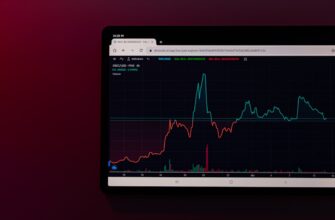## Introduction: Navigating Indonesia’s Crypto Airdrop Tax Landscape
Cryptocurrency airdrops – free token distributions to wallet holders – have become popular in Indonesia’s booming digital asset space. However, many recipients overlook a critical fact: Indonesia’s tax authority (Direktorat Jenderal Pajak/DJP) treats airdrops as taxable income. Failure to properly report these assets can trigger severe penalties, including hefty fines and interest charges. This guide breaks down Indonesia’s airdrop taxation rules, penalty risks, and compliance strategies to keep you legally protected.
## How Indonesia Taxes Crypto Airdrops: Key Regulations
Under DJP Regulation PER-11/PJ/2022, cryptocurrency transactions fall under commodity trading rules. Airdrops are classified as “other income” (Penghasilan Lainnya) under Article 4(1) of Indonesia’s Income Tax Law. Three critical principles apply:
– **Tax Trigger Point**: Tax liability arises immediately upon receipt of tokens
– **Valuation Method**: Value is based on fair market price at distribution time
– **Tax Rate**: Added to annual income and taxed at progressive rates (5%-30%)
## Step-by-Step: Calculating Your Airdrop Tax Liability
Follow this process to determine what you owe:
1. **Record Receipt Details**: Note the date, token quantity, and exchange listing status
2. **Determine Fair Market Value**:
– Use IDR prices from reputable exchanges (e.g., Indodax, Tokocrypto) at distribution time
– For unlisted tokens, use project’s pre-sale price or equivalent token value
3. **Convert to IDR**: Apply daily exchange rates from Bank Indonesia
4. **Include in Annual Tax Return**: Report under “Other Income” in your SPT Tahunan
*Example Calculation*:
Received 500 XYZ tokens when 1 XYZ = Rp2,000
Taxable Value = 500 × Rp2,000 = Rp1,000,000
If in 30% tax bracket: Tax Due = Rp300,000
## Penalties for Non-Compliance: Risks You Can’t Ignore
Failure to report airdrops accurately invites escalating consequences:
– **Late Payment Penalty**: 2% monthly interest on unpaid tax (capped at 48% annually)
– **Underreporting Fine**: 50% of underpaid tax for unintentional errors; 100% for intentional evasion
– **Failure to File**: Fixed fines up to Rp1,000,000 plus criminal prosecution risk
– **Audit Triggers**: Discrepancies between exchange reports and tax filings
## 5-Step Compliance Strategy to Avoid Penalties
1. **Maintain Immutable Records**:
– Screenshot airdrop announcements
– Archive wallet transaction histories
– Store exchange rate proofs
2. **Quarterly Prepayments**:
– Make advance payments (Angsuran PPh 25) if airdrops push income above Rp4.8 million/month
3. **Leverage Tax Software**:
– Use DJP-approved tools like OnlinePajak for automatic crypto income tracking
4. **Professional Consultation**:
– Engage certified tax consultants (Konsultan Pajak) for complex cases
5. **Timely Reporting**:
– File annual returns by March 31st
– Report even unsold tokens
## Future Regulatory Outlook: What to Expect
Indonesia’s Financial Services Authority (OJK) is finalizing comprehensive crypto regulations, likely to:
– Introduce clearer valuation guidelines for airdrops
– Implement stricter data sharing between exchanges and tax authorities
– Establish minimum thresholds for minor airdrops
## Frequently Asked Questions (FAQ)
**Q: Are small airdrops under Rp1 million taxable?**
A: Yes. Indonesia has no minimum threshold for crypto income. All airdrops must be reported regardless of value.
**Q: What if I receive tokens not listed on exchanges?**
A: Estimate value using project documentation or equivalent token metrics. Document your valuation method for audit protection.
**Q: Do I pay tax again when selling airdropped tokens?**
A: Yes. Capital gains tax applies upon sale. Your cost basis is the value declared at receipt.
**Q: Can I deduct airdrop-related expenses?**
A: Only if you qualify as a professional trader. Personal wallet holders cannot deduct expenses.
**Q: How far back can DJP audit my airdrop history?**
A: Standard audit period is 5 years, extendable to 10 years for suspected fraud.
## Conclusion: Proactive Compliance is Essential
With Indonesia intensifying crypto tax enforcement, understanding airdrop tax obligations is non-negotiable. By accurately valuing tokens upon receipt, maintaining meticulous records, and filing timely returns, you avoid penalties that could erase crypto gains. Consult a certified tax professional for personalized guidance and stay updated through DJP’s official channels as regulations evolve.








